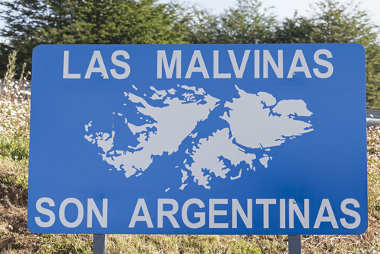At Falkland – or Falklands, in English – are an archipelago composed of about 200 islands located in South America, less than 500 km southeast of Argentina, composing a territory administered by the United Kingdom, but which has a relative degree of autonomy, with an area of 12,175 km² and a population of just over three thousand inhabitants. This area is commonly known for disputes involving England and Argentina, countries that claim dominion over this territory.
The Falklands are formed by two main islands, called West Falkland and East Falkland. It has relatively homogeneous altitudes with the presence of some hills in the central areas. The capital of this territory - and also the only city - is the municipality of Stanley.
The local economy revolves around agriculture, in addition to the fact that the region has a high fishing potential, used by ships and foreign bodies upon payment of fees and taxes, which help fuel the economy local. The currency is the Malvinense Pound, very similar to the British Pound Sterling.
As it does not have any industrial system, practically all secondary products in the region are imported. Most of these imports come from England, but there is also an extensive trade relationship with the United States and the Netherlands.
In 1982, the Argentine government, led by dictator Leopoldo Galtieri, invaded the Malvinas islands and claimed that they belonged to the South American country, believing that it would be supported by the United States so that it would not have a great reaction from the English government. However, Prime Minister Margareth Thatcher sent a large number of troops and, within two months, managed to win one of the shortest but bloodiest wars of the 20th century.
This event contributed to the downfall of the Argentine dictator, who was replaced by a civil government, and contributed to the rise of popularity of Thatcher, who managed to get re-elected in the elections following. However, the Argentine government never fully recognized the legitimacy of the British occupation of Malvinas.
In 1999, geological studies detected the existence of oil, a fact that has, since then, contributed to intensify diplomatic disagreements between the two countries on this issue. In 2012, Argentine President Cristina Kirchner intensified the speeches and international pressure for England to open a round of negotiations on the possession of the Malvinas territory.

Argentina claims the territory of the Malvinas
As a result of Argentina's offensive in the political sphere, the British held a referendum consulting the population of Falklands Islands on the approval or disapproval of British rule over the island, the result of which was 98.8% in favour. However, the Argentine government claimed that the referendum was illegal on the grounds that it is a false popularity, given that most of the population is of English descent due to the fact that the Argentines were expelled from the archipelago during the 19th century.
By Rodolfo Alves Pena
Graduated in Geography
Source: Brazil School - https://brasilescola.uol.com.br/geografia/ilhas-malvinas.htm
